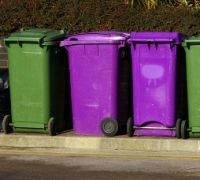

The news that all businesses and households in England will have to separate their recycling and food waste for collection from March 2025 and 2026 respectively will have reached most people by now.
And the complicated nature in which it has been implemented has led to a multitude of questions and confusion, especially because in the middle of the implementation of the separation of waste scheme there was a change in Government and policy positions became unclear.
The current Government has now issued a policy update about the separation of waste requirements, which takes a slightly different approach to the idea of simpler recycling than the previous Government was proposing. Details of the policy update have been summarised below.
What is this about?
It was announced earlier in 2024 that all businesses, relevant non-domestic premises and all households in England must have recyclable waste separately collected. The waste it refers to is glass, metal, plastic, paper and card, and food, with the addition of garden waste for households.
The law, as introduced via the Environmental Protection Act 1990, requires each of those waste streams to be collected separately from all other type of waste, i.e. there would have to be one collection for glass, one for metal, one for plastic etc.
However, the previous Government decided that this needed to be simplified, so introduced Draft law as part of a simpler recycling plan that would see all recyclable wastes collected together with the exception of food, which would remain separate. But that wasn't made into law before the election and was officially withdrawn on 3 December 2024.
The Government has now published a policy update to explain what their approach to simpler recycling will be, details of which are below.
Timeline for simpler recycling
This has not changed from the timelines that had been previously announced. In summary:
Can my waste be mixed?
The Government has published the Separation of Waste (England) Regulations SI 2025/140 allows the combined collection of metal, glass and plastic waste from all premises in England. In addition, it will allow food waste to be mixed with garden waste in domestic premises only.
However, waste collectors don't have to rely on the exemption. They can decide to collect each recyclable waste stream separately if they choose to. It is therefore important that waste collection arrangements are discussed carefully with waste collectors.
This means that the Government's "maximum default requirement" is that there will be four waste containers at all premises moving forward for:
The containers don't have to be bins but could be bags or stackable boxes instead, as long as the container is appropriate.
There will be flexibility to collect paper and card with all other dry recycling materials in cases where separate collection is technically or economically impracticable or where it provides no significant environmental benefit. The example is given of high-rise flats with limited outdoor space. However, to use this flexibility waste collectors will need to produce a written assessment as to why they are collecting everything together.
What happens next?
To accompany their policy announcement, the Government has published two guidance documents focusing on:
For more information, see: